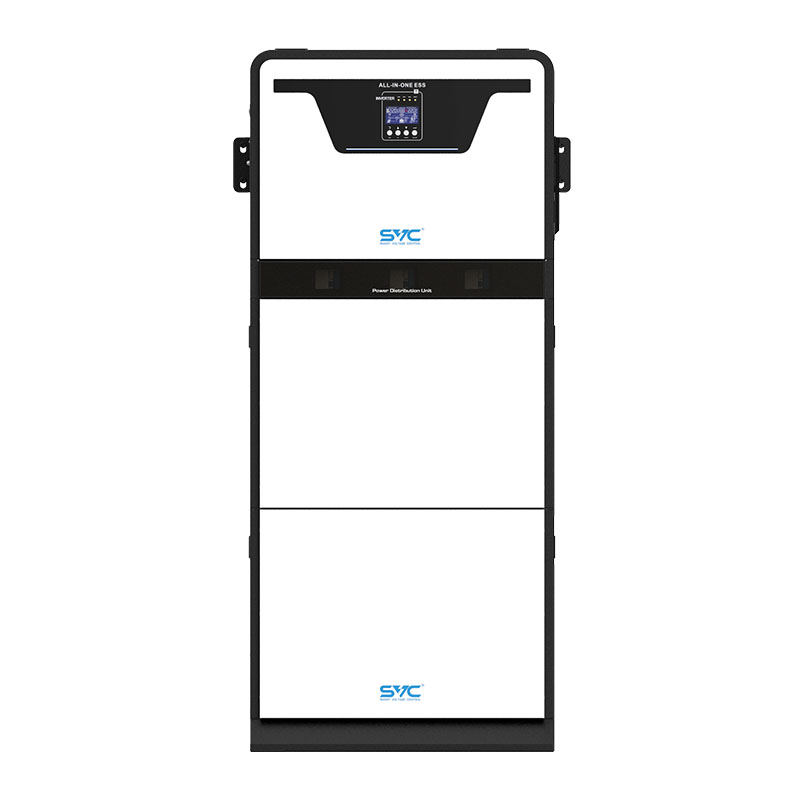
Guidance on Residential Energy Storage System
2023-12-11 00:00
Residential energy storage systems (ESS) are devices that can store and deliver electrical energy for household use, usually in combination with solar photovoltaic (PV) systems.
Benefits of Residential Energy Storage System
Residential Energy Storage System can provide various benefits for homeowners, such as increasing self-consumption of solar energy, reducing electricity bills, enhancing grid reliability and resilience, and supporting renewable integration.
However, choosing and installing a residential solar with battery storage can be a complex and challenging process, as there are many factors to consider, such as the type, size, cost, performance, and safety of the system.
Here are some guidance and tips on how to select and use a residential ESS effectively and efficiently.
Type of residential Energy Storage System
When you deciding install residential solar with battery storage, there are different types of residential Energy Storage System, depending on the battery chemistry, configuration, and functionality. The most common types are lithium-ion batteries, lead-acid batteries, and flow batteries, each with its own advantages and disadvantages.
For example, lithium-ion batteries have a higher energy density, longer cycle life, and better safety than lead-acid batteries, but they are also more expensive and sensitive to temperature. Flow batteries have a lower energy density, shorter cycle life, and higher maintenance than lithium-ion batteries, but they are also more scalable, flexible, and durable. You should choose the type of residential ESS that best suits your needs, preferences, and budget.
RPS Series is new version of household ESS energy storage system built-in a 5KW off grid solar inverter and 5.12kWh lithium-ion battery modules into one unit. This solar energy system offers an economical and self-sufficiency solution to power home appliance by storing excess clean energy during the daytime.
Size of residential ESS
The size of residential Energy Storage System refers to the capacity and power of the system, measured in kilowatt-hours (kWh) and kilowatts (kW), respectively. The capacity determines how much energy the system can store and deliver, while the power determines how fast the system can charge and discharge. The size of residential ESS depends on several factors, such as the size and output of your solar PV system, the amount and pattern of your electricity consumption, the availability and price of grid electricity, and the level of backup and autonomy you want. You should choose the size of residential ESS that can optimize your self-consumption of solar energy, reduce your dependence on the grid, and meet your backup and emergency needs
Cost of residential ESS
The cost of residential ESS includes the upfront cost of purchasing and installing the system, as well as the ongoing cost of operating and maintaining the system. The upfront cost depends on the type and size of the system, the quality and warranty of the components, the complexity and location of the installation, and the availability of incentives and financing options. The ongoing cost depends on the efficiency and degradation of the system, the frequency and intensity of cycling, the maintenance and replacement requirements, and the electricity tariffs and fees. You should choose the cost of residential ESS that can provide you with the best return on investment, taking into account the savings and benefits you can get from the system over its lifetime.
Performance of residential ESS
The performance of residential ESS refers to how well the system can store and deliver energy, as well as provide other services and functions. The performance depends on the technical specifications and features of the system, such as the round-trip efficiency, depth of discharge, state of charge, response time, and communication and control capabilities. The performance also depends on the environmental and operational conditions of the system, such as the temperature, humidity, altitude, and load profile. You should choose the performance of residential ESS that can maximize your energy savings and security, as well as support the grid and the environment.
Safety of residential ESS: The safety of residential ESS refers to the potential risks and hazards of the system, such as fire, explosion, electric shock, and chemical leakage. The safety depends on the design and quality of the system, such as the battery chemistry, structure, and management, the inverter and protection devices, and the enclosure and ventilation. The safety also depends on the installation and maintenance of the system, such as the compliance with codes and standards, the proper wiring and grounding, and the regular inspection and testing. You should choose the safety of residential ESS that can minimize the likelihood and impact of accidents and incidents, as well as protect your health and property.
In Conclusion
These are some of the main aspects that you should pay attention to when choosing and installing a residential ESS. By following these guidance and tips, you can make an informed and smart decision that can help you enjoy the benefits of residential ESS for years to come. Still confused? Contact us now, one the professional residential energy storage companies in China.
Get the latest price? We'll respond as soon as possible(within 12 hours)













